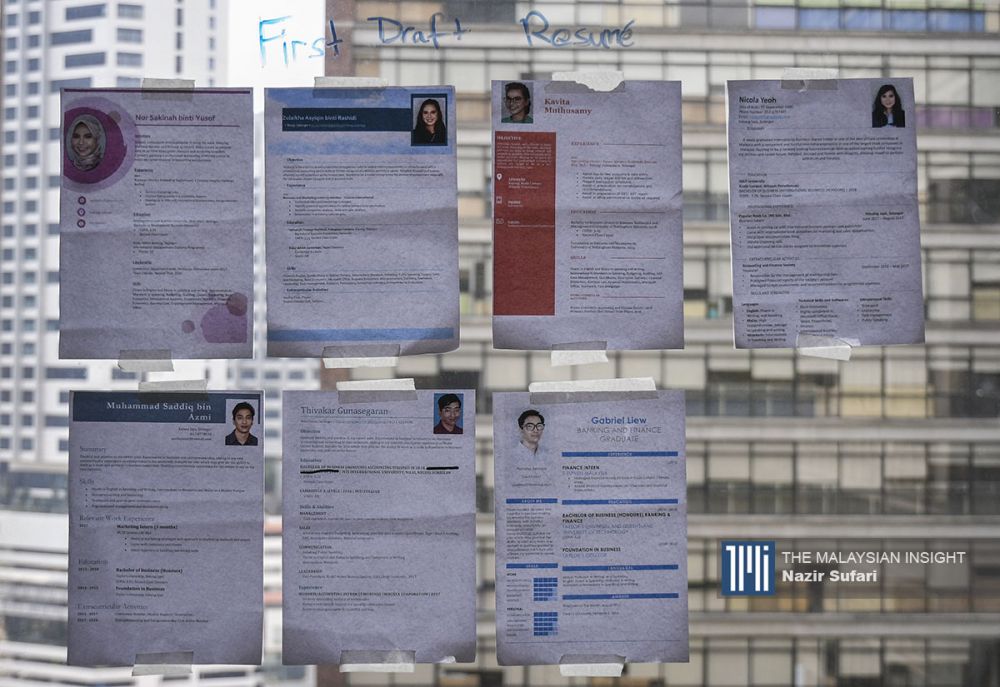5 Problems With The Study Claiming Malay & Indian Jobseekers Are Discriminated Against
There are flaws in the way the research was conducted.
KL-based research firm Cent-GPS released its study on racism in private sector employment yesterday, 7 March
The 48-page report concluded that out of the seven fake candidates created, jobseekers of Malay and Indian descent are less likely to receive callbacks from employers than jobseekers of Chinese descent.
Other conclusions from the report include:
- The "Mandarin-speaking requirement" is a smokescreen to hire Chinese candidates, and
- A Malay female candidate who does not wear the hijab is more likely to get a callback than one who wears the hijab.
The four female candidates were the same woman after make-up, and the male candidates were the same man with make-up as well.
Cent-GPS also claimed that the candidates were given similar qualifications and background before their resumés were sent out to employers.
Netizens have since highlighted problems with the report's research methodology. Here are some of them:
1. Lack of information on profiles of the companies applied to
Cent-GPS had claimed that their resumés were sent to job advertisements of sales and marketing positions. It added that the companies that were applied to range from logistics, pharmaceuticals, oil and gas, retail, and IT.
The centre added that 10% of the 547 companies they applied to specifically required Mandarin as a job requirement. Its report read, "We do not specifically search for companies that is owned or controlled by a specific ethnic group. It’s truly random, based on what the online (job) portal suggests to us".
However, the composition or owners of those companies remain unclear. Cent-GPS did not address if the Mandarin-speaking requirement was issued by Chinese-controlled companies, nor did they publicise the composition and business of the companies.
2. Sample size
For its sample size design, Cent-GPS had cited in its report a 2016 study by Lee Hwok-Aun and Muhammad Abdul Khalid, who were researchers at University of Malaya.
However, while Lee Hwok-Aun and Muhammad Abdul Khalid designed 3,012 different resumés for their paper, divided into four groups of candidates, Cent-GPS merely designed seven resumés for seven candidates.
Although the centre sent those resumés for 547 job applications, a longstanding rule in academia is to avoid deriving conclusions for entire ethnic groups based on one or two candidates from each group.
3. Claim in equality of experience
Cent-GPS had claimed that it crafted the resumés to make sure each candidate seem equal in terms of experience.
However, closer inspection on the resumés found that the universities listed on them might not be perceived as equal to the public, regardless of race.
4. Failure in standardising resumé design
In its report, the centre acknowledged comments from reviewers that the way a resumé looks influences decisions in human resource departments. It also claimed that it would address the issue in its research.
However, in its methodology, Cent-GPS wrote,"our team ensured that while the resumés looked different, crucial factors that may possibly play a role in obtaining a callback for the candidates are held constant".
5. No explanation for pattern of discrimination in private sector
Cent-GPS did not explain the discriminating pattern of hiring, or why it is rampant in Malaysia.
While it reaffirmed that findings from the 2016 study by Lee Hwok-Aun and Muhammad Abdul Khalid remain relevant, the study only offered findings on an Indian candidate as a distinction from Lee Hwok-Aun and Muhammad Abdul Khalid. Apart from that, there were little explanation on the choices in callbacks made by employers in different sectors regarding the nature of jobs.
Although the centre has since been called out for confirmation bias and lack of consistency, Cent-GPS maintains that the differences in resumés were to evade detection by employers
The centre also attempted to address other concerns from netizens in a Twitter Live session earlier today, 8 March.
Confirmation bias is the tendency to search for, interpret, favour, and recall information in a way that confirms one's preexisting beliefs or hypotheses.

